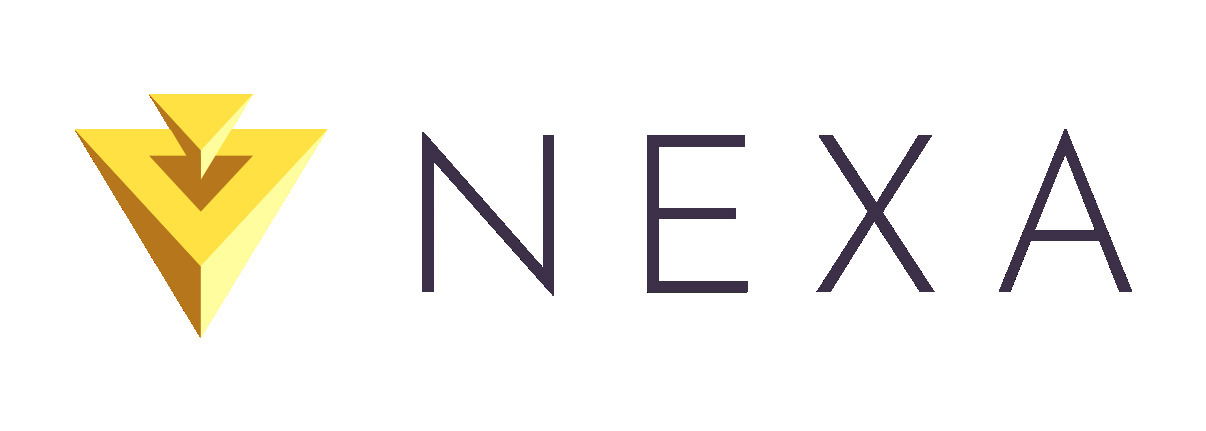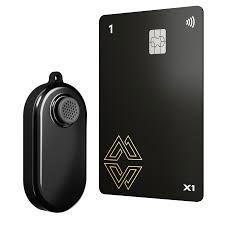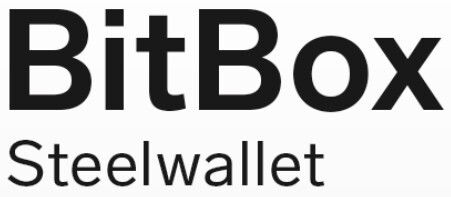Cypherock X1 vs Traditional Hardware Wallets

Introduction
In recent years, cryptocurrency has grown in popularity as a means of investing, and as a result, the need to protect digital assets has never been more crucial. A well-liked method of securing cryptocurrencies is the use of hardware wallets, which provide offline storage and further defence against any hacking efforts.
Traditional hardware wallets use a seed phrase, typically a sequence of 12-24 words, to generate private keys and access funds. On the other hand, Cypherock X1 use a shamir secret sharing model, where multiple shards (2 of 5) are required to approve transactions, adding an extra layer of security. Another advantage of Cypherock X1 is its compatibility with multiple cryptocurrencies, including Bitcoin, Ethereum, Litecoin, and many more.

X1 Wallet has a dual chip architecture for offline computation & verification. It never stores the complete private keys to your Crypto.
Cypherock X1 is a unique seedless hardware wallet that utilizes a model called Shamir Secret Sharing (SSS), for secure key generation. This eliminates the need for a seed phrase, which can be lost or stolen, and reduces the risk of key compromise. Instead, Cypherock X1 divides the private key into multiple parts and distributes them to different locations, making it virtually impossible for an attacker to gain access to all parts of the key.
The purpose of this article is to compare and contrast Cypherock X1, a seedless hardware wallet, with traditional hardware wallets and help readers decide which is right for them. By examining the features, benefits, and drawbacks of each type of wallet, readers can make an informed decision on which solution best fits their needs.
Traditional Hardware Wallets
Traditional hardware wallets, also known as single signature wallets, are the most commonly used type of hardware wallet in the cryptocurrency space. These wallets work by generating a private key using a seed phrase that is known only to the user. The seed phrase is typically a series of 12-24 words that are generated randomly and in a specific order, which is then used to generate a private key.
One of the biggest advantages of traditional hardware wallets is their ease of use. They are designed to be user-friendly and intuitive, making them accessible to users of all technical levels. They also have a straightforward setup process, which typically involves generating a seed phrase, connecting the wallet to a computer or mobile device, and then transferring cryptocurrency to the wallet.
Another advantage of traditional hardware wallets is their security. The private key generated using the seed phrase is stored securely on the wallet, which is typically a small device that can be connected to a computer or mobile device via USB. The device is designed to keep the private key offline, making it resistant to hacking attempts and malware attacks. This offline storage method makes it virtually impossible for anyone to access the private key, thus ensuring the safety of the cryptocurrency stored on the wallet.
However, there are also some disadvantages to traditional hardware wallets. One of the biggest drawbacks is the reliance on the seed phrase. If the seed phrase is lost or stolen, there is no way to recover the private key, and the cryptocurrency stored on the wallet is effectively lost. This risk is compounded by the fact that seed phrases are typically written down or stored electronically, making them vulnerable to theft or loss.
Another disadvantage is the lack of redundancy. Traditional hardware wallets typically only have one private key, which means that if the wallet is lost, damaged, or stolen, there is no backup available. This can be a significant risk for users who hold large amounts of cryptocurrency, as it leaves them vulnerable to loss if anything happens to their hardware wallet.
In summary, traditional hardware wallets offer a simple and secure way to store cryptocurrency offline. However, they do come with some drawbacks, including the risk of losing the seed phrase and the lack of redundancy. Users who prioritize ease of use and accessibility may find traditional hardware wallets to be the right choice, while those who prioritize security and redundancy may want to consider a seedless hardware wallet like Cypherock X1.
Introducing Cypherock X1
Cypherock X1 is a groundbreaking hardware wallet that is changing the way we secure our digital assets. It is the world’s first hardware wallet that eliminates the need for a seed phrase backup, making it an innovative and secure solution for cryptocurrency storage. Instead of relying on seed phrases, Cypherock X1 uses Shamir Secret Sharing (SSS), a unique method of key generation and distribution, to secure your private keys.
With the increasing popularity of cryptocurrency, the need for secure storage solutions has become a top priority. Hackers are constantly looking for ways to gain access to digital assets, and traditional hardware wallets that rely on seed phrases are not foolproof. Seed phrases can be lost, stolen, or even compromised, leaving your digital assets vulnerable to attack. Cypherock X1 eliminates this risk, providing a new level of security for cryptocurrency investors.
Shamir’s Secret Sharing (SSS) model splits the user’s private key into 5 shards, with 2 shards required to make a transaction. This means that even if an attacker gains access to one or two shards, they still won’t be able to access the user’s private key and steal their funds.
One of the key benefits of Cypherock X1 is that it eliminates the need for seed phrases, which are a common point of failure in traditional hardware wallets. Instead, Cypherock X1 uses 4 X1 cards that the user simply taps on the device to complete transactions.
X1 Cards are NFC-based smartcards with EAL 5+ secure elements. Which simply means, they have the exactly same secure hardware as that of your bank's credit card.
Another advantage of Cypherock X1’s SSS model is that it allows for greater flexibility in managing one’s cryptocurrency holdings. For example, a user can create different sets of shards and distribute them among trusted individuals or storage locations, providing an extra layer of security in case of loss or theft.
Cypherock X1:
- Multi-Asset Support
3000+ digital assets supported
- Up to 4 Wallets Storage
Use X1 Wallet to store 4 different seed phrases
- Open Source Wallet
Find on github
- EAL 5+ Robust Hardware Security
Bank Grade Security inside your X1 Cards
Cypherock X1 vs. Traditional Hardware Wallets: A Comparison
When it comes to choosing a hardware wallet for your cryptocurrency, it’s important to consider your individual needs and preferences. Traditional hardware wallets, such as Ledger and Trezor, have been the standard for many years. However, the Cypherock X1 offers a unique alternative that might be a better fit for some users.
The key advantage of the Cypherock X1 is its seedless design. Unlike traditional hardware wallets that require a seed phrase for backup, the Cypherock X1 uses Shamir Secret Sharing to split your private key into five shards. This means that no single device or card contains your full private key, and all five shards are required to make a transaction. In the event of theft or loss, an attacker would need to obtain three of the five shards to gain access to your funds. In contrast, traditional hardware wallets use seed phrases to generate private keys. While seed phrases can be a useful backup, they can also be a single point of failure. If your seed phrase falls into the wrong hands, all of your funds can be easily stolen.
Another advantage of the Cypherock X1 is its ease of use. The device comes with four X1 cards, which are used to tap the device rather than inserting them. This makes transactions faster and more convenient. In contrast, traditional hardware wallets often require the user to insert the wallet into a computer or mobile device, which can be cumbersome.
Additionally, Cypherock X1 comes with a seed phrase vault that securely stores the user’s seed phrase backup. This is a critical feature as seed phrases are often the only way to recover a lost or stolen hardware wallet. The seed phrase vault is protected by a PIN code ensuring that only the authorized user can access it. This provides users with peace of mind knowing that their backup phrase is stored securely and can be accessed if needed.
Cypherock X1 offers a unique and seamless portfolio management experience for its users. It allows users to create up to four unique wallets completely segregated from each other. The segregation happens at such a fundamental level that each unique wallet has a separate seedphrase, thereby, acting as four completely unique hardware wallets in themselves. Now, users currently use multiple hardware wallets to manage their portfolios like company funds, personal Hodl funds, DeFi Investments, and NFTs investments. Users can manage all these multichain portfolios from within Cysync App as a single master portfolio manager app.
Use the promo code buybit2410, follow this link and get a 10% discount when buying a Cypherock X1 hardware wallet in the official online store of the manufacturer >>>
Choosing the Right Wallet for You
After comparing and contrasting the features and benefits of Cypherock X1 and traditional hardware wallets, it’s important to determine which one is the right fit for your individual needs.
First and foremost, consider your level of experience with cryptocurrency and hardware wallets. If you’re new to the game, a traditional hardware wallet may be a more user-friendly option. However, if you’re an experienced user looking for enhanced security and peace of mind, the Cypherock X1 may be the better choice.
Next, think about how often you plan on using your hardware wallet and what types of cryptocurrencies you plan on holding. If you’re a frequent trader or hold a variety of coins, the portfolio management features of the Cypherock X1 may make it the more practical choice. With the ability to store up to 24 different cryptocurrencies and manage them all from one device, the Cypherock X1 simplifies the process of managing your crypto portfolio.
Additionally, consider the importance of a seed phrase vault. While traditional hardware wallets rely on seed phrases to recover your private key, the Cypherock X1 does not. Instead, it uses the Shamir Secret Sharing model to split your private key into 5 shards, making it much more difficult for an attacker to gain access to your funds. This eliminates the need for a seed phrase, which can be vulnerable to hacking and phishing attacks.
In summary, when choosing a hardware wallet, it’s important to consider your level of experience, the types of cryptocurrencies you plan on holding, and the security features that matter most to you. While traditional hardware wallets may be a more user-friendly option, the Cypherock X1 offers enhanced security, portfolio management, and a seedless solution, making it the better choice for experienced users looking to safeguard their assets.
To summarise the comparison, we have created a table below:
| Features | Cypherock X1 | Traditional Hardware Wallet |
|---|---|---|
| Security | 5-shard SSS model | Seed phrase |
| Easy Portfolio Management | YES | NO |
| Accessibility | X1 Card Required | USB connection |
| Ease of Use | Easy | Moderate |
| Single Point of Failure | NO | YES |
| Inheritance | YES | NO |
| Seed Phrase Required | NO | YES |
It’s important to do your own research and weigh the pros and cons of each option before making a final decision.
| Features | Cypherock X1 | Ledger | Trezor |
|---|---|---|---|
| 1. More than 3000+ assets supported | YES | YES | YES |
| 2. No seed phrase backup required | YES | NO | NO |
| 3. Inheritance of your crypto assets | YES | NO | NO |
| 4. Storage of multiple seedphrases | YES | NO | NO |
| 5. Open source | YES | NO | YES |
| 6. EAL5+ secure element | YES | YES | NO |
| 7. Decentralized private key storage | YES | NO | NO |
Conclusion
In conclusion, hardware wallets are essential for securing cryptocurrencies, and choosing the right one can make a significant difference in the level of security and ease of use. Traditional hardware wallets offer simplicity and accessibility, while Cypherock X1, a seedless hardware wallet, provides enhanced security and a unique approach to securing private keys.
With its advanced security features, such as the use of Shamir’s Secret Sharing, Cypherock X1 is a better choice for those who prioritize security and peace of mind. Its seedless technology also removes the need for seed phrases, which can be vulnerable to theft or loss.
Moreover, Cypherock X1 provides seamless portfolio management, allowing users to access and manage multiple cryptocurrencies with ease. The device also comes with a Seed Phrase Vault, which is an additional layer of security that can protect seed phrases from unauthorized access.
While traditional hardware wallets are a good option for those who are new to cryptocurrencies or those who prioritize accessibility, they may not provide enough security for those who hold a significant amount of digital assets. Therefore, it is crucial to assess your needs and preferences and research the available options thoroughly before making a final decision.
In conclusion, Cypherock X1 is a revolutionary seedless hardware wallet that provides enhanced security, seamless portfolio management, and a user-friendly experience. By choosing Cypherock X1, users can rest assured that their digital assets are safe and secure.
Learn more about Cypherock X1:
- Security: Types of attacks on crypto hardware wallets, Cypherock X1
- How Cypherock Works - Safeguarding Your Crypto with the Cypherock X1
- Features - Discover the Disruptive Technology and Unmatched Security of Cypherock X1
- Getting Started - Download Cysync App, Cypherock X1
Source: https://www.cypherock.com/
Learn more about the best TOP 30 hardware cryptocurrency wallets
You can see this list here.
TOP 29 Hardware Wallets, the Official Online Stores
| 1 |  | Trezor hardware wallet, the official online store |  |
| 2 |  | Ledger hardware wallet, the official online store |  |
| 3 |  | KeepKey hardware wallet, the official online store |  |
| 4 |  | BitBox02 hardware wallet, the official online store |  |
| 5 |  | CoolWallet hardware wallet, the official online store |  |
| 6 |  | ELLIPAL hardware wallet, the official online store |  |
| 7 |  | D'CENT hardware wallet, the official online store. |  |
| 8 |  | SafePal hardware wallet, the official online store |  |
| 9 |  | SecuX hardware wallet, the official online store |  |
| 10 |  | BC Vault hardware wallet, the official online store |  |
| 11 |  | BitLox hardware wallet, the official online store |  |
| 12 |  | Keystone hardware wallet, the official online store |  |
| 13 |  | ProKey hardware wallet, the official online store |  |
| 14 |  | NGRAVE hardware wallet, the official online store |  |
| 15 |  | Keevo hardware wallet, the official online store |  |
| 16 |  | GridPlus hardware wallet, the official online store |  |
| 17 |  | Ballet hardware wallet, the official online store |  |
| 18 |  | OPOLO hardware wallet, the official online store |  |
| 19 |  | Foundation (Passport) hardware wallet, the official online store |  |
| 20 |  | ImKey hardware wallet, the official online store |  |
| 21 |  | Tangem hardware wallet, the official online store |  |
| 22 |  | HashWallet hardware wallet, the official online store |  |
| 23 |  | Material Bitcoin hardware wallet, the official online store |  |
| 24 |  | ShieldFolio hardware wallet, the official online store |  |
| 25 |  | OneKey hardware wallet, the official online store |  |
| 26 |  | Blockstream Jade hardware wallet, the official online store |  |
| 27 |  | Cypherock hardware wallet, the official online store |  |
| 28 |  | Keepser hardware wallet, the official online store |  |
| 29 |  | NEXA hardware wallet, the official online store |  |


















































